 W
WCostache or Kostake Aristia was a Wallachian-born poet, actor and translator, also noted for his activities as a soldier, schoolteacher, and philanthropist. A member of the Greek colony, his adolescence and early youth coincided with the peak of Hellenization in both Danubian Principalities. He first appeared on stage at Cișmeaua Roșie in Bucharest, and became a protege of Lady Rallou. She sponsored his voyage to France, where Aristia became an imitator of François-Joseph Talma.
 W
WGheorghe Asachi was a Moldavian, later Romanian prose writer, poet, painter, historian, dramatist and translator. An Enlightenment-educated polymath and polyglot, he was one of the most influential people of his generation. Asachi was a respected journalist and political figure, as well as active in technical fields such as civil engineering and pedagogy, and, for long, the civil servant charged with overseeing all Moldavian schools. Among his leading achievements were the issuing of Albina Românească, a highly influential magazine, and the creation of Academia Mihăileană, which replaced Greek-language education with teaching in Romanian. His literary works combined a taste for Classicism with Romantic tenets, while his version of the literary language relied on archaisms and borrowings from the Moldavian dialect.
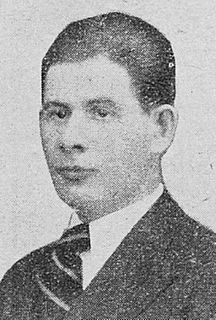 W
WIon Călugăru was a Romanian novelist, short story writer, journalist and critic. As a figure on Romania's modernist scene throughout the early interwar period, he was noted for combining a picturesque perspective on the rural Jewish-Romanian community, to which he belonged, with traditionalist and avant-garde elements. His early works, including the novel Copilăria unui netrebnic, bring together elements of Social Realism, Surrealism and Expressionism over a conventional narrative line based on oral tradition and the classics of Romanian literature. Călugăru, who moved from the moderate Contimporanul magazine to the Surrealist platform unu, was also one of the main contributors to Integral, a tribune for avant-garde literature in general. Although publicly known for his socialist convictions and his far left inclinations, he was, through his position at Cuvântul newspaper, present in the proximity of fascist circles, and had an ambiguous attitude toward his employer, the far right thinker Nae Ionescu.
 W
WLudovic Dauș was a Romanian novelist, playwright, poet and translator, also known for his contributions as a politician and theatrical manager. He was born into a cosmopolitan family, with a Czech father and a boyaress mother, but his formative years were marked by life in the small boroughs of Western Moldavia. Trained as a lawyer and employed for a while as a publisher, Dauș joined the body of experts at the Ministry of Royal Domains, climbing through the bureaucratic ranks. In parallel, he advanced his literary career: a noted dramatist, he was an unremarked poet and historical novelist prior to World War I. His translation work covered several languages, and includes Romanian versions of The Kreutzer Sonata, Madame Bovary, and Eugénie Grandet.
 W
WBenjamin Fondane or Benjamin Fundoianu was a Romanian and French poet, critic and existentialist philosopher, also noted for his work in film and theater. Known from his Romanian youth as a Symbolist poet and columnist, he alternated Neoromantic and Expressionist themes with echoes from Tudor Arghezi, and dedicated several poetic cycles to the rural life of his native Moldavia. Fondane, who was of Jewish Romanian extraction and a nephew of Jewish intellectuals Elias and Moses Schwartzfeld, participated in both minority secular Jewish culture and mainstream Romanian culture. During and after World War I, he was active as a cultural critic, avant-garde promoter and, with his brother-in-law Armand Pascal, manager of the theatrical troupe Insula.
 W
WEmil Gârleanu was a Romanian prose writer.
 W
WAdolf Edmund George de Herz, commonly shortened to A. de Herz, also rendered as Hertz and Herț, was a Romanian playwright and literary journalist, also active as a poet, short story author, and stage actor. He was the scion of an upper-class assimilated Jewish family, with its roots in Austria-Hungary. His grandfather, Adolf Sr, was a controversial banker and venture capitalist, while his father, Edgar von Herz, was noted as a translator of Romanian literature. Adolf had a privileged childhood and debuted as a poet while still in high school, producing the lyrics to a hit romance. In his early work for the stage, Herz was a traditionalist inspired by Alexandru Davila and the Sămănătorul school, but later veered toward neoclassical literature and aestheticism. His "salon comedies", staged by the National Theater Bucharest, borrowed from various authors, including Roberto Bracco, Henri Lavedan, and Haralamb Lecca, peaking in popularity in 1913, with Păianjenul. By the start of World War I, Herz was also a writer of revues.
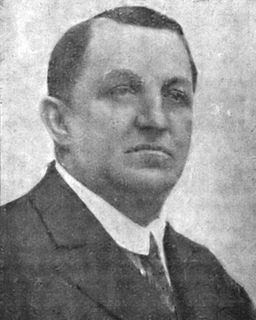 W
WAvram Imbroane was an Austro-Hungarian-born Romanian politician, businessman, and Orthodox priest. Born in the western half of Banat, he was active in nationalist agitation among that region's Romanian community, and later also in Transylvania. By the time of World War I, he supported secession and the unconditional union of Transylvania and the Banat with the Kingdom of Romania. He fled Austria-Hungary and engaged in propaganda work—first in Romania, then among the Transylvanian prisoners-of-war in the Russian Republic. In late 1918, he returned to the Banat and became an active participant in the unionist struggle, participating in the "Great Union Day" assemblies.
 W
WMarcel Iureş is a Romanian actor. He is one of Romania's most acclaimed stage and film actors. He has acted in films and on stage both in Romania and internationally, and has played at least ten roles on Romanian and British television. His work includes voiceovers for Disney and computer games. Iureş is the president and a judge of the Anonimul International Film Festival and also the president of Ideo Ideis Festival.
 W
WMihail Kogălniceanu was a Moldavian, later Romanian liberal statesman, lawyer, historian and publicist; he became Prime Minister of Romania on October 11, 1863, after the 1859 union of the Danubian Principalities under Domnitor Alexandru Ioan Cuza, and later served as Foreign Minister under Carol I. He was several times Interior Minister under Cuza and Carol. A polymath, Kogălniceanu was one of the most influential Romanian intellectuals of his generation. Siding with the moderate liberal current for most of his lifetime, he began his political career as a collaborator of Prince Mihail Sturdza, while serving as head of the Iași Theater and issuing several publications together with the poet Vasile Alecsandri and the activist Ion Ghica. After editing the highly influential magazine Dacia Literară and serving as a professor at Academia Mihăileană, Kogălniceanu came into conflict with the authorities over his Romantic nationalist inaugural speech of 1843. He was the ideologue of the abortive 1848 Moldavian revolution, authoring its main document, Dorințele partidei naționale din Moldova.
 W
WHaralamb George Lecca was a Romanian poet, playwright and translator, grandson of artist Constantin Lecca and brother of genealogist Octav-George Lecca, as well as nephew and rival of writer Ion Luca Caragiale. He had an unsettled youth, studying medicine and law for a while, and also reaching a Sub-Officer's rank in the terrestrial army. He debuted in literature under the guidance of Bogdan Petriceicu Hasdeu, who also employed Lecca's services as a medium. His early work was in poetry, often outstandingly macabre, evidencing his familiarity with 19th-century French literature and hinting at a vague affiliation with Symbolism. Briefly a collaborator of Junimea society, then of its dissident wings, Lecca never joined the fledgling Symbolist movement, and spent his later life in relative isolation from all literary circles.
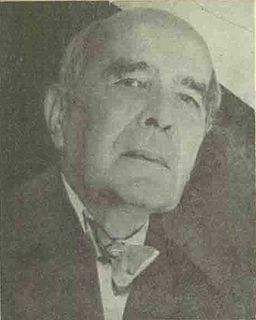 W
WAdrian Maniu was a Romanian poet, prose writer, playwright, essayist and translator.
 W
WMax Hermann Maxy was a Romanian painter, art professor, scenographer, and professor of German-Jewish descent.
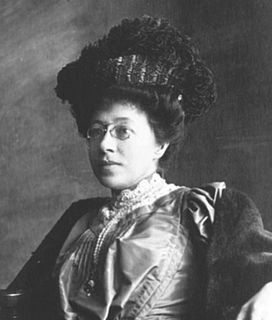 W
WMărgărita Miller-Verghy was a Romanian socialite and author, also known as a schoolteacher, journalist, critic and translator. A cultural animator, she hosted a literary club of Germanophile tendencies during the early part of World War I, and was later involved with Adela Xenopol in setting up feminist cultural venues. Her main contributions to Romanian literature include translations from English literature, a history of feminine writing in the national context, a novella series and an influential work of detective fiction. Many of her other works have been described as mediocre and didactic.
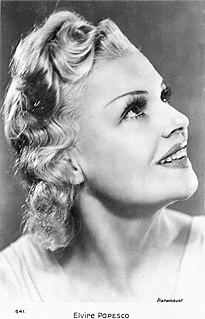 W
WElvira Popescu was a Romanian-French stage and film actress and theatre director. During the 1930s and 1940s, she starred in a number of French comedy films.
 W
WMihail Sadoveanu was a Romanian novelist, short story writer, journalist and political figure, who twice served as acting head of state for the communist republic. One of the most prolific Romanian-language writers, he is remembered mostly for his historical and adventure novels, as well as for his nature writing. An author whose career spanned five decades, Sadoveanu was an early associate of the traditionalist magazine Sămănătorul, before becoming known as a Realist writer and an adherent to the Poporanist current represented by Viața Românească journal. His books, critically acclaimed for their vision of age-old solitude and natural abundance, are generally set in the historical region of Moldavia, building on themes from Romania's medieval and early modern history. Among them are Neamul Șoimăreștilor, Frații Jderi and Zodia Cancerului. With Venea o moară pe Siret..., Baltagul and some other works of fiction, Sadoveanu extends his fresco to contemporary history and adapts his style to the psychological novel, Naturalism and Social realism.
 W
WMihail Sorbul was a Romanian playwright and novelist.
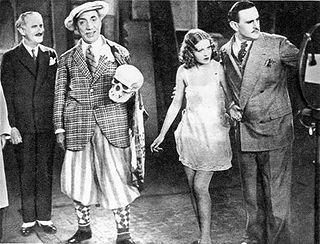 W
WConstantin Tănase was a Romanian actor and writer for stage, a key figure in the revue style of theater in Romania.